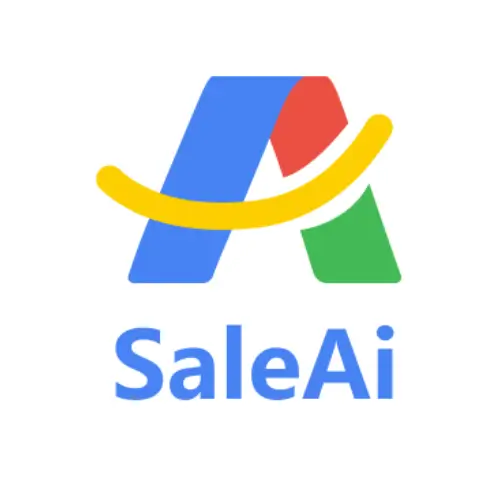Introduction: The Evolving Landscape of Trade Compliance
Trade compliance has become a critical concern for businesses involved in global trade. Regulatory requirements are becoming increasingly complex, with governments around the world implementing stricter controls over imports and exports.
For businesses, this means navigating a growing web of tariffs, sanctions, documentation requirements, and trade agreements. Non-compliance is no longer an option—it can result in hefty fines, damaged reputations, and disrupted supply chains.
This is where AI in trade compliance steps in. By automating compliance checks, analyzing vast datasets, and providing real-time updates on regulations, AI tools like SaleAI are redefining how businesses approach global trade compliance.
This article explores the transformative impact of AI in trade compliance and why it’s becoming an essential tool for modern businesses.
The Value of AI in Trade Compliance
a. Keeping Pace with Regulatory Changes
Trade regulations are constantly evolving, and keeping up with these changes manually can be overwhelming. AI tools automate the process by continuously monitoring updates and notifying businesses of relevant changes.
b. Enhancing Accuracy
Manual compliance processes are prone to human error, which can lead to costly mistakes. AI eliminates these errors by automating tasks such as tariff classification, documentation checks, and risk assessments.
c. Improving Efficiency
AI streamlines compliance workflows, reducing the time and effort required to meet regulatory requirements. This allows businesses to focus on their core operations instead of getting bogged down by compliance tasks.
d. Proactively Managing Risks
AI tools can analyze patterns and predict potential risks, enabling businesses to address compliance issues before they escalate.
How SaleAI Integrates AI into Trade Compliance
a. Automated Tariff and Classification Checks
SaleAI simplifies the process of classifying goods and determining applicable tariffs.
- HS Code Classification: AI algorithms ensure accurate classification of goods based on Harmonized System (HS) codes, reducing the risk of incorrect declarations.
- Tariff Calculations: Automatically calculate duties, taxes, and tariffs for specific products and destinations.
Example: A machinery exporter can use SaleAI to classify complex equipment under the correct HS codes, avoiding customs disputes and delays.
b. Real-Time Compliance Monitoring
SaleAI continuously tracks global trade regulations, ensuring businesses have access to the latest compliance requirements.
- Regulatory Updates: Receive alerts about changes in import/export regulations, tariffs, and trade agreements.
- Sanctions Screening: Identify restricted entities and ensure compliance with embargoes and sanctions.
Result: Businesses can stay compliant without investing significant resources in manual research.
c. Documentation Management
Preparing accurate trade documentation is a key aspect of compliance. SaleAI automates this process, reducing errors and ensuring consistency.
- Export Licenses: Verify whether export licenses are required for specific products or destinations.
- Certificates of Origin: Generate and validate required certificates for international trade.
- Customs Declarations: Ensure all required fields are completed accurately.
Benefit: Businesses can avoid shipment delays caused by incomplete or incorrect documentation.
d. Risk Assessment and Mitigation
SaleAI helps businesses identify potential compliance risks and take proactive measures to mitigate them.
- Trade Route Analysis: Evaluate risks associated with specific shipping routes or countries.
- Supply Chain Risks: Assess compliance risks related to suppliers and partners.
- Customs Disputes Prevention: Identify potential red flags in customs declarations before submitting them.
Impact: Risk mitigation ensures smoother operations and protects businesses from unforeseen disruptions.
e. Leveraging Data for Strategic Insights
SaleAI doesn’t just address compliance—it provides businesses with data-driven insights to improve their overall trade strategies.
- FTA Utilization: Identify opportunities to leverage Free Trade Agreements (FTAs) for reduced tariffs.
- Market Access Analysis: Assess regulatory barriers and costs associated with entering new markets.
- Cost Optimization: Reduce compliance-related expenses through smarter, data-driven decisions.
Outcome: Businesses can turn compliance into a competitive advantage, improving profitability and market access.
Benefits of Using AI for Trade Compliance
a. Reduced Compliance Costs
Automating compliance processes reduces the need for manual labor and minimizes costly errors.
b. Improved Speed and Efficiency
AI accelerates compliance checks and documentation, enabling faster customs clearance and better operational efficiency.
c. Enhanced Accuracy
AI eliminates the risk of human error, ensuring compliance processes are accurate and reliable.
d. Greater Risk Mitigation
Proactive risk management protects businesses from fines, delays, and reputational damage.
e. Scalability
AI tools like SaleAI can handle the complexities of compliance across multiple markets, making them ideal for businesses with global operations.
Practical Steps to Implement AI in Trade Compliance
-
Assess Your Current Compliance Processes
- Identify pain points, such as manual processes or frequent errors, that AI can address.
-
Choose the Right AI Solution
- Opt for a platform like SaleAI that offers comprehensive compliance tools tailored to your business needs.
-
Integrate AI into Your Workflow
- Use SaleAI to automate tasks like HS code classification, documentation preparation, and risk analysis.
-
Train Your Team
- Ensure your team understands how to use SaleAI effectively and can interpret its insights.
-
Monitor and Optimize
- Continuously track the performance of your compliance processes and make adjustments as needed.
Conclusion: Simplifying Trade Compliance with AI
AI is transforming trade compliance, turning a traditionally complex and time-consuming process into a streamlined, data-driven operation. With tools like SaleAI, businesses can improve accuracy, reduce costs, and proactively manage risks, ensuring seamless global trade operations.
By integrating AI into your compliance processes, you’re not just meeting regulatory requirements—you’re building a foundation for sustainable growth in international markets. Start leveraging the power of AI in trade compliance with SaleAI today.



